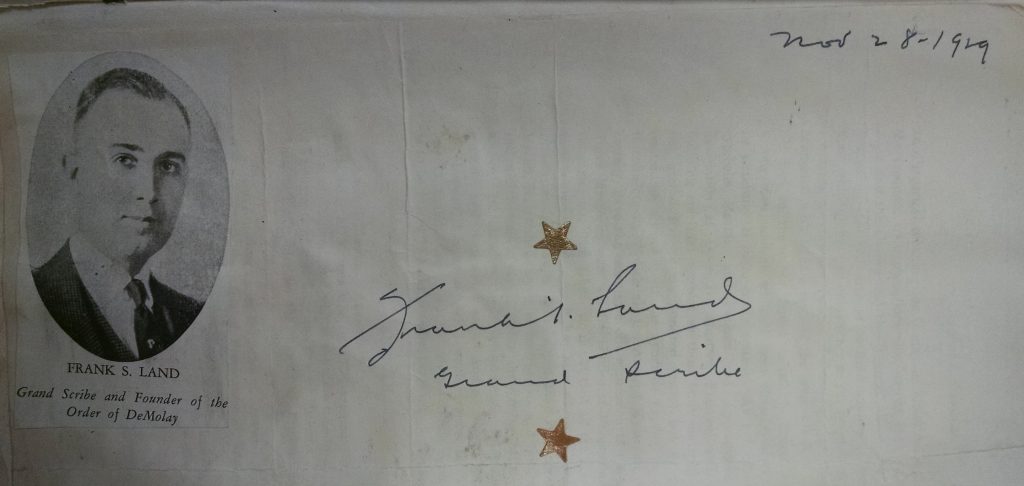Dad Land’s Advice to Advisory Councils

Centennial Celebration Moments #14
Dad Land’s Advice to Advisory Councils
In an early publication of the Grand Council, “Dad” Land wrote a column called “The Grand Scribe’s Scribblings.” In one issue he gave some advice concerning the operation of Advisory Councils.
Writing about the selection of the Chapter Advisor, he suggested that “The Advisor should be an enthusiast, inspired with boy ideals, desire to make DeMolay mean something to a community and who could keep his fellow members working with him. He should be a man whom the boys like and should be present at each meeting.”
Concerning the selection of other men to serve on an Advisory Council he wrote, “As a rule, it is best to select those men who will appeal to young men between the ages of 16 and 21. The morals of members of Advisory Boards should be unquestioned. Men should be appointed whose qualifications fit them for these positions rather than select the men and then trying to fit the position to them. Member of Boards should be men who could and would work together in harmony; membership on Boards should not be used in furthering anyone’s business interests.”
He further advised, “The interests of the boy is paramount. The Order is in the interest of the boy rather than the Advisory Council… In handling their boys, Advisory Councils should place themselves in the positions of the boys with whom they have to deal; problems should always be looked at from the boy standpoint, which is very often quite different from that of the grown-up. Boy psychology demands that he be governed by ‘do’ rather than ‘don’t.’ it is much better to tell a boy that it is “better to do a thing some other way” than to tell him he ‘can’t do it.’ An advisory board is an opportunity for some real shirt sleeve diplomacy.”
1.) What part of this advice stands out the most to you? Why?
2.) Why do you think this is or is not, valid advice to YOUR Advisory Council, today?
3.) When “Dad” Land talks about ‘boy psychology’ do you think he is referring to scientific fact, or just generally accepted popular opinion?
4.) Do you respond better to positive (‘do’) or negative (‘don’t) feedback? Is your response different based on who is providing the feedback?
